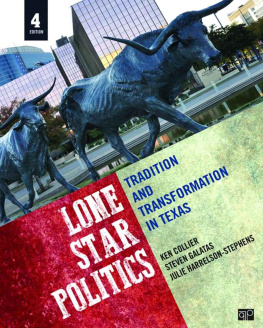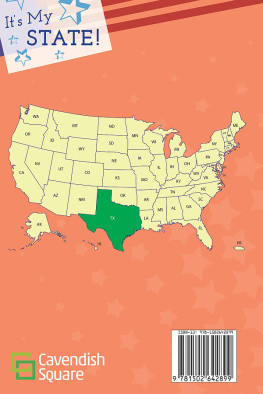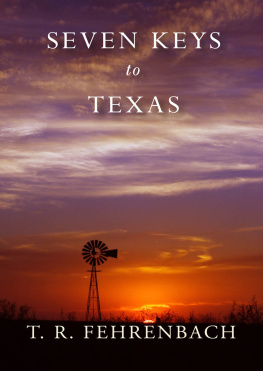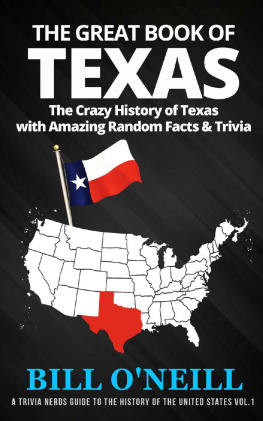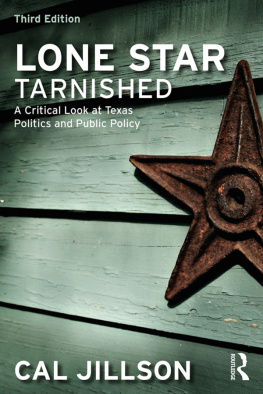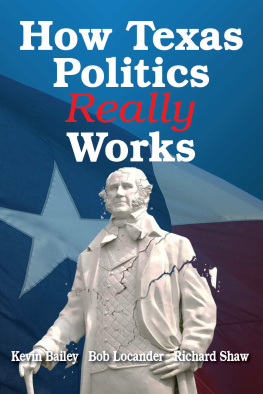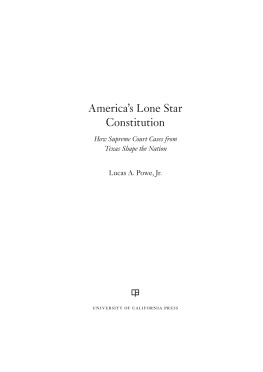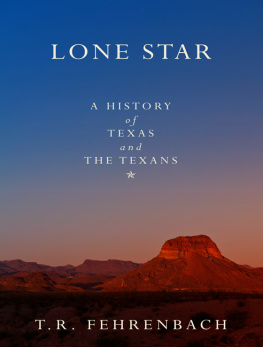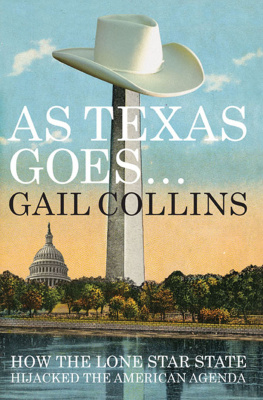FOR INFORMATION:
CQ Press
An Imprint of SAGE Publications, Inc.
2455 Teller Road
Thousand Oaks, California 91320
E-mail: order@sagepub.com
SAGE Publications Ltd.
1 Olivers Yard
55 City Road
London EC1Y 1SP
United Kingdom
SAGE Publications India Pvt. Ltd.
B 1/I 1 Mohan Cooperative Industrial Area
Mathura Road, New Delhi 110 044
India
SAGE Publications Asia-Pacific Pte. Ltd.
3 Church Street
#10-04 Samsung Hub
Singapore 049483
Copyright 2016 by CQ Press, an Imprint of SAGE Publications, Inc. CQ Press is a registered trademark of Congressional Quarterly Inc.
All rights reserved. No part of this book may be reproduced or utilized in any form or by any means, electronic or mechanical, including photocopying, recording, or by any information storage and retrieval system, without permission in writing from the publisher.
Printed in the United States of America
Cataloging-in-publication data is availble for this title from the Library of Congress.
ISBN 978-1-4833-5277-0
This book is printed on acid-free paper.
15 16 17 18 19 10 9 8 7 6 5 4 3 2 1
Acquisitions Editor: Sarah Calabi
Senior Development Editor: Nancy Matuszak
Digital Content Editor: Allison Hughes
Editorial Assistant: Raquel Christie
Production Editor: Laura Barrett
Copy Editor: Shannon Kelly
Typesetter: C&M Digitals (P) Ltd.
Proofreader: Theresa Kay
Indexer: Judy Hunt
Cover Designer: Michael Dubowe
Marketing Manager: Amy Whitaker
Preface
As has often been said, there is no State in the Union whose history presents such varied and romantic scenes as does that of Texas. This alone would recommend it to the general reader and the earnest student. But there is in addition to its interest a weighty reason why every school in the State should give Texas History a place in its course of study. No one who learns well the lessons taught can fail to become a better and wiser citizen.1
Anna J. Hardwicke Pennybacker, A New History of Texas for Schools (1888)
Mrs. Pennybackers new history of Texas presents a traditional view of the states history. The copy we used when writing this book originally belonged to Earl B. Persons, the great-uncle of one of the authors. In the century since young Earl Persons first read this quotation in his schoolbook, Texans have written some new history and revised some old. Mr. Persons served in World War I before taking part in the rise of the oil business in East Texasa period during which he saw his pastures become more valuable for the oil under them than the cattle that grazed on them. The next generation of Texans saw America through World War II, the Cold War, and the space race directed from NASA in Houston. That generation grew up on Texas History Movies, a comic version of Texas history sponsored by an oil company. Another generation saw the high-tech boom take root in the state. Texans born today may never own a printed book on the states politics and history, and thus they will be unlikely to leave their names scrawled in a textbook to remind descendants of the Texas their ancestors knew. (However, todays students can still preserve the Texas they know by buying copies of this text and setting them aside so that their children and grandchildren can share the fun of Texas circa 2015please contact CQ Press for inquiries regarding bulk sales.)
The economic, demographic, and political changes in the state continually introduce new ways of life to its citizens. Over the past century, as Texans moved from the ranches and farms of the countryside into more urban areas, these cities, suburbs, and exurbs became the natural habitat of Texans. As small towns gave way to cities, Texans found themselves living closer and closer together, meaning that they had to cooperate more with neighbors and fellow citizens. The farmers lonely but simple commute from farmhouse to field has been replaced by long treks to work on crowded superhighways. For Texans of an earlier time, commerce meant the weekly trip into town to sell goods, buy supplies, and check the mail at the post office. Social networking meant gathering at the local coffee shop to swap stories over breakfast. Today, many Texans remain in constant contact with other Texans, other Americans, and other people from around the world. Many Texans have trouble working when their Internet connection goes down even briefly.
Clearly, we Texans arent what we used to be. However, our image of ourselves has not changed quite as much as the circumstances of our lives. During the century since Mrs. Pennybacker wrote those words reproduced above, most Texans have looked again at our history and found a much more nuanced view of our conflicts with the Mexican government during the revolution and with the U.S. government during and after the U.S. Civil War. Although scholars have reviewed and revised the stories of Texas, Texans have often clung to the more romantic version of our history. At the same time, Texans seamlessly blend together many of the traditions and cultural traits that find their way into the state. One cant help to think about the blending of cultures when revising chapters over a breakfast of jalapeo cheddar biscuits, which combine the states southern and Mexican heritages, in the familiar confines of Whataburger, a modern chain restaurant with roots in Corpus Christi that has become a Texas tradition of its own. In Texas, we often take the blending of cultures for granted. Such a meal is neither Mexican nor southernits Texan.
Our states government is in the unenviable position of having to keep pace with all the changes in the state while still remaining true to our traditions and legends. Texas government needs to be both lean and modern, capable of managing the affairs of almost 27 million Texans while still retaining a small-town feel and the frontier spirit. Texas leaders must be both engaged and rooted, nimble enough to respond to global competition and regional hurricane devastation but still able to ride a horse and swap stories with fellow Texans, whether over the counter of the local diner or over the Internet on Reddit, Facebook, or Twitter.
One of the most remarkable things about teaching Texas politics is that, although many Texas students only take the course because its required, and so many instructors have trepidations about teaching it, the subject is actually pretty enjoyable. As Molly Ivins said, I believe politics is the finest form of entertainment in the state of Texas: better than the zoo, better than the circus, rougher than football, and more aesthetically satisfying than baseball.2 Generations of textbooks have stepped into the breach between these reluctant participants, often with mixed results. Textbooks about Texas politics tend to be rather dry, but the topic can be spicy, as our states history is full of legends, criminals, preachers, hucksters, and even comedians. Somehow, when all is said and done, the life is too often taken out of Texas politics, and we think thats a true Texas tragedy.

